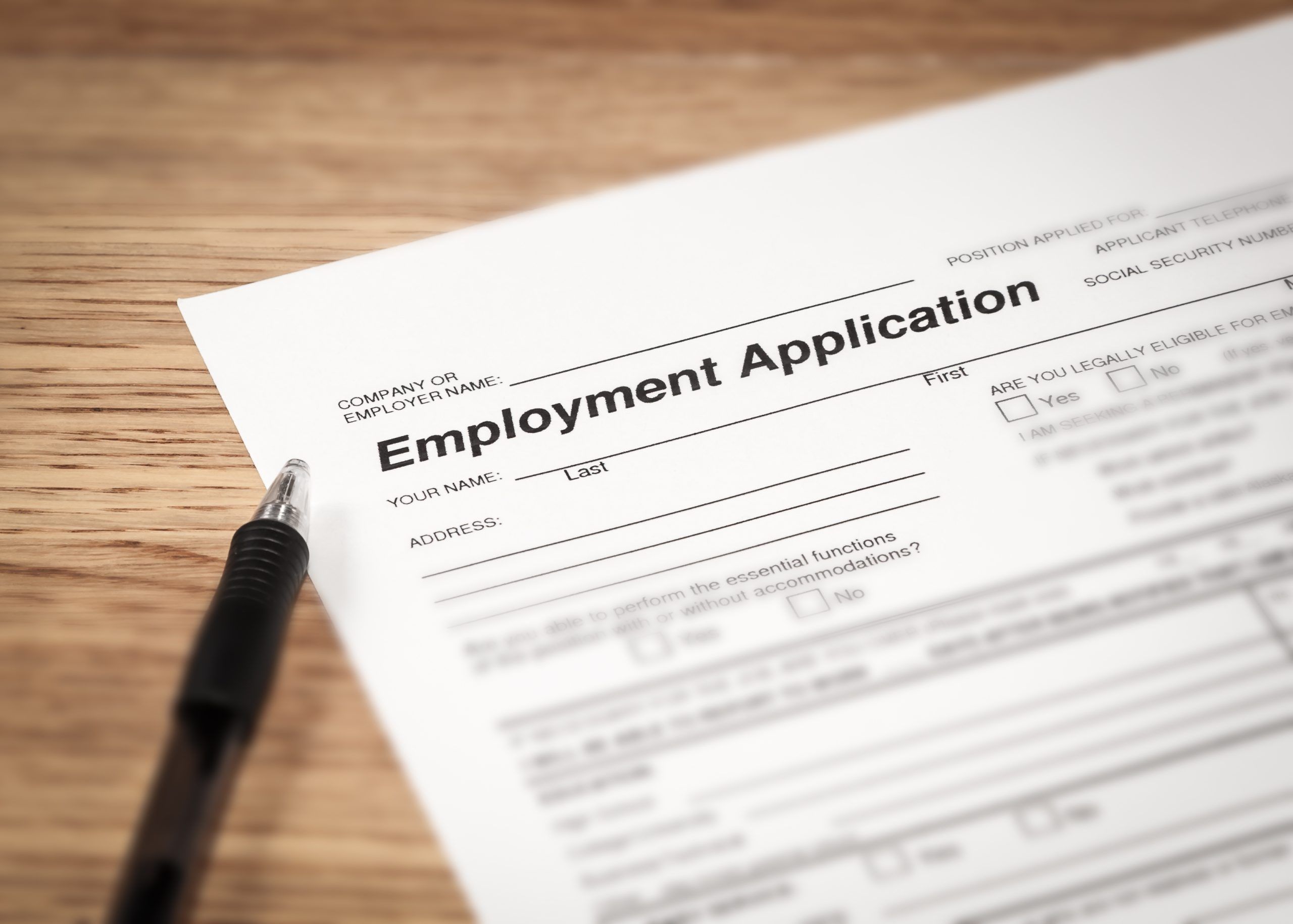Author: hammond
Proving wrongful termination under California labor law involves demonstrating that your firing was based on an illegal reason—such as discrimination, retaliation, or breach of contract. While California is an at-will employment state, there are clear legal protections that can make certain terminations unlawful. If you believe you were wrongfully fired, gathering the right evidence and understanding your legal options is crucial.
Step 1: Identify the Illegal Reason
To have a valid wrongful termination case, you must first establish that your employer fired you for a reason prohibited...
Can I Be Fired in California Without a Reason?
Yes, under California’s “at-will” employment law, most employees can be fired without a specific reason. However, this doesn’t mean employers can terminate workers for illegal or discriminatory reasons. Understanding the difference between lawful at-will terminations and wrongful termination is essential for protecting your rights as an employee.
What Does At-Will Employment Mean?
At-will employment means that both the employer and employee can end the employment relationship at any time, with or without notice, and with or without cause. Unless you are covered by an employment...
What Should I Do to Protect My Rights After Being Wrongfully Terminated from My Job?
If you believe you were wrongfully terminated in California, taking the right steps immediately after your dismissal can make a significant difference in your ability to pursue justice and protect your rights. Acting quickly and strategically will help you build a stronger legal case, if necessary.
1. Stay Calm and Professional
While losing your job can be emotional and frustrating—especially if it feels unjust—it’s important to remain calm and composed. Avoid burning bridges, saying things in anger, or acting out. Maintaining professionalism can protect your reputation and help your...
How Do I Know If I Was Wrongfully Terminated in California?
Being fired from your job is never easy, but if your termination was based on unlawful reasons, it may be considered wrongful termination under California law. Understanding the difference between legal and illegal firing is essential for protecting your rights and seeking justice if necessary.
Understanding Wrongful Termination
California is an “at-will” employment state, which means employers can terminate employees at any time, with or without cause. However, that doesn’t give employers the right to fire someone for reasons that violate the law or breach an employment agreement. If...
Can I Be Fired Without a Reason in an At-Will State Like California?
California follows the legal doctrine of “at-will” employment, which allows employers to terminate employees at any time, with or without cause. This often raises confusion among workers about whether their employer can legally fire them without giving any explanation. While employers in California can generally fire an employee without a reason, there are important exceptions that protect workers from unlawful termination.
Understanding At-Will Employment
At-will employment means that an employer does not need to prove just cause to terminate someone’s employment. Similarly, an...
What Constitutes Wrongful Termination Under California Law?
California is an “at-will” employment state, which means that an employer can generally terminate an employee at any time, with or without cause. However, this doesn’t give employers free rein to fire workers for unlawful reasons. When a termination violates state or federal law, breaches an employment contract, or contradicts public policy, it may be considered wrongful termination.
Understanding At-Will Employment
Under California’s at-will doctrine, employers are not required to provide a reason for firing an employee. However, exceptions exist to prevent abuse of this flexibility....
How Do I File a Discrimination Complaint Against My Employer in California?
If you believe you’ve been discriminated against at work based on race, gender, age, disability, or another protected characteristic, California law provides a clear process for filing a complaint. The Civil Rights Department (CRD), formerly known as the DFEH, handles discrimination complaints in the workplace. Here’s how to file and what to expect.
Step 1: Understand Your Rights
California’s Fair Employment and Housing Act (FEHA) protects employees from discrimination based on a variety of characteristics, including:
Race, ethnicity, or national origin
Gender, gender...
Can I Be Denied a Job or Promotion in California Due to My Race, Gender, or Other Protected Characteristic in California?
California law prohibits employers from making employment decisions based on a person’s protected characteristics. This includes hiring, promotions, job assignments, and other terms of employment. If you’ve been denied a job or promotion because of your race, gender, age, disability, religion, or other legally protected trait, you may have a valid claim under California’s robust anti-discrimination laws.
Protected Characteristics Under California Law
The California Fair Employment and Housing Act (FEHA) protects individuals from employment discrimination based on:
Race,...
What’s the Difference Between Disparate Treatment and Disparate Impact in California Workplace Discrimination Cases?
In California workplace discrimination cases, two key legal theories often come into play: disparate treatment and disparate impact. Understanding the difference between them can help employees identify whether they may have a valid discrimination claim and how the law views different forms of unequal treatment in the workplace.
What Is Disparate Treatment?
Disparate treatment occurs when an employer intentionally treats an employee or job applicant differently based on a protected characteristic. This includes race, gender, age, religion, disability, sexual orientation, or other...
What Types of Discrimination Are Illegal in California Workplaces?
California law provides some of the strongest protections for workers facing discrimination in the workplace. Under the California Fair Employment and Housing Act (FEHA) and federal laws like Title VII of the Civil Rights Act, it is illegal for employers to treat employees unfairly based on certain protected characteristics. These laws apply to hiring, firing, promotions, job assignments, wages, and other terms of employment.
Protected Characteristics Under California Law
California law prohibits discrimination based on a wide range of personal attributes. Employers cannot make...
How Do I Prove Workplace Discrimination in California?
Independent contractors do not receive the same legal protections as employees under California labor law. However, that doesn’t mean they are without recourse. Whether an independent contractor can sue under labor laws depends heavily on how the worker has been classified and whether that classification is accurate under state law.
Misclassification of Independent Contractors
One of the most common legal issues arises when a worker has been misclassified as an independent contractor. Under California law, particularly the ABC test outlined in Assembly Bill 5 (AB5), many workers who...
What Qualifies as Workplace Discrimination in California?
Workplace discrimination in California is a serious legal issue, and state laws offer strong protections for employees who are treated unfairly due to certain protected characteristics. Under the California Fair Employment and Housing Act (FEHA), it is illegal for employers to discriminate against employees or job applicants based on specific traits such as race, gender, age, disability, and more.
Protected Characteristics Under California Law
California law prohibits discrimination based on the following personal characteristics:
Race or ethnicity
National origin or...
How Long Do I Have to File a Whistleblower Retaliation Claim in California?
If you’ve been retaliated against for reporting illegal activity at work, it’s important to act quickly. California law provides whistleblower protections, but strict deadlines apply. Filing your claim within the correct time frame is crucial to preserving your rights and recovering damages.
Key Deadlines for Filing a Whistleblower Claim
The deadline to file a retaliation claim depends on the specific law under which you’re filing and the nature of your employer:
Labor Code Section 1102.5: This is California’s primary whistleblower protection law. You have three...
What Damages Can I Recover in a Whistleblower Retaliation Case?
If you’ve faced retaliation at work after reporting illegal or unethical activity, California labor law offers strong protections — including the right to seek compensation. Understanding the types of damages you can recover in a whistleblower retaliation case is key to knowing your rights and potential recovery.
Types of Damages Available to Whistleblowers
In a successful whistleblower retaliation claim, you may be entitled to several types of damages depending on the facts of your case:
Back Pay: Compensation for lost wages and benefits from the date of termination,...
How to File a Whistleblower Retaliation Claim in California
California offers strong legal protections for employees who report unlawful conduct by their employers. If you’ve experienced retaliation — such as being fired, demoted, harassed, or otherwise penalized — after reporting suspected violations, you may have grounds for a whistleblower retaliation claim. Here’s what you need to know about filing a claim in California.
Step 1: Identify Whether You Engaged in Protected Activity
To file a whistleblower retaliation claim, you must first establish that you engaged in protected activity under California law. This includes:
Reporting...
How to Prove Whistleblower Retaliation in California
California law provides strong protections for employees who report unlawful or unethical conduct at work. However, to successfully bring a whistleblower retaliation claim, you must be able to prove that your employer took adverse action against you because of your protected activity. Understanding the legal requirements for proving retaliation is essential to building a strong case.
Elements of a Whistleblower Retaliation Claim
To establish a retaliation claim under California Labor Code Section 1102.5, an employee must generally show the following:
Protected Activity: You engaged...
What Employee Activities Are Protected Under California Whistleblower Laws?
California whistleblower protection laws shield employees who speak up about illegal, unethical, or unsafe conduct in the workplace. These laws are designed to encourage transparency and accountability while protecting workers from retaliation for doing the right thing. Understanding what types of activities are legally protected is essential for any employee considering a report.
Protected Whistleblower Activities in California
California Labor Code Section 1102.5 is the state’s primary whistleblower protection statute. It prohibits employers from retaliating against employees who...
According to California Labor Law, What Qualifies as a Whistleblower in the Workplace?
In California, a whistleblower is an employee who reports suspected illegal, unethical, or unsafe activities in the workplace. California law offers strong protections to these individuals to encourage the reporting of wrongdoing without fear of retaliation. These protections are outlined primarily in California Labor Code Section 1102.5 and other state statutes.
Who Is Considered a Whistleblower?
You may be considered a whistleblower if you report any of the following:
Violations of state or federal laws or regulations
Noncompliance with local ordinances or rules
Unsafe...
What Are Waiting Time Penalties and Am I Owed Extra Pay?
Under California Labor Code Section 203, employees who are terminated or voluntarily resign and do not receive their final wages on time may be entitled to “waiting time penalties.” These penalties are designed to compensate employees for the delay and encourage employers to pay final wages promptly and in full.
When Are Final Wages Due?
The timing of final wage payments depends on how your employment ended:
If you are terminated or laid off, your employer must provide your final paycheck immediately at the time of separation.
If you resign and give at least 72 hours of...
How to File a Wage Claim with the California Labor Commissioner
How to File a Wage Claim with the California Labor Commissioner
If your employer has failed to pay you the wages you are owed, you may be entitled to file a wage claim with the California Labor Commissioner. This legal process helps employees recover unpaid wages, including minimum wage violations, unpaid overtime, missed meal and rest breaks, and unauthorized deductions.
Step 1: Gather Documentation
Before filing a claim, collect any documentation that supports your case. This may include:
Pay stubs and time records
Work schedules or calendars
Written communications with...
Can My Employer Legally Deduct Wages in California? What You Need to Know
Under California labor law, employers are strictly limited in when and how they can deduct wages from an employee’s paycheck. Unauthorized or improper deductions are considered a form of wage theft and are illegal. If you believe your wages have been wrongfully deducted, it’s important to understand your rights and the steps you can take to protect them. When Are Wage Deductions Legal in California? Employers may only deduct wages from an employee’s paycheck under specific and lawful circumstances. Legal deductions typically include: State and federal taxes Social Security and Medicare...
What to Do If Your Paycheck Is Incorrect or Missing Wages in California
California labor laws require employers to pay employees accurately and on time. If your paycheck is incorrect or missing wages, you have legal options to recover what you’re owed. Whether it’s unpaid regular hours, overtime, bonuses, or final wages, the law protects your right to fair pay. Acting quickly and strategically is key to preserving your claim.
Steps to Take If You’re Missing Wages
Review Your Pay Stub: Carefully examine your pay stub for errors in hours worked, rate of pay, deductions, and withholdings. Compare it to your records or time sheets.
Document the...
How to Protect Your Rights If You Are Forced to Work Off the Clock
Being required to work off the clock—before clocking in, after clocking out, or during unpaid breaks—is a violation of California labor law. Employers must pay for all hours an employee is “suffered or permitted to work,” even if they didn’t formally authorize it. If you’re being asked to work without pay, it’s important to take steps to protect your rights and hold your employer accountable.
Steps You Can Take
Document Everything: Keep detailed records of your hours worked, even those not reflected on your official timecard. Use a notebook, spreadsheet, or app to record...
How is Wage Theft Defined Under California Employment Law?
Wage theft occurs when an employer fails to pay an employee the full wages they are legally owed. In California, wage theft is taken seriously, and state labor laws provide strong protections for workers. Employers who withhold pay, deny lawful breaks, or misclassify employees may be engaging in wage theft, whether knowingly or not.
Common Examples of Wage Theft
Wage theft can take many forms, including both obvious and more subtle violations of labor law. Some of the most common examples include:
Failure to pay minimum wage
Failure to pay overtime wages
Withholding final...
Can I File a Sexual Harassment Complaint Anonymously in California?
If you’ve experienced sexual harassment at work, it’s natural to be concerned about retaliation or damage to your professional reputation. While California law provides protections against retaliation, remaining completely anonymous when filing a formal complaint may not always be possible—especially if the case proceeds to litigation.
Anonymous Complaints to Your Employer
You may be able to report harassment anonymously through your company’s internal channels, such as a hotline or human resources system. However, if the employer needs to investigate the claim, they may need...
Is There a Time Limit for Filing a Sexual Harassment Complaint in California?
Is There a Time Limit for Filing a Sexual Harassment Complaint in California?
Yes, California law sets specific deadlines—known as statutes of limitations—for filing a sexual harassment complaint. If you’ve experienced harassment at work, it’s important to act quickly to preserve your legal rights and options.
Current Filing Deadlines
Under California’s Fair Employment and Housing Act (FEHA), the current statute of limitations for filing a sexual harassment complaint with the California Civil Rights Department (CRD) is:
Three years from the last incident of harassment or...
Under California Labor Law, What Protections Do I Have Against Retaliation After Reporting Sexual Harassment?
California Labor Law provides strong protections for employees who report sexual harassment in the workplace. If you report harassment in good faith—whether it’s directed at you or a coworker—you are legally protected from retaliation by your employer or anyone acting on their behalf.
What Is Considered Retaliation?
Retaliation can take many forms and includes any adverse action taken against you for reporting or participating in a sexual harassment investigation. Examples include:
Termination or demotion
Reduction in pay or hours
Negative performance reviews without...
Can I Sue My Employer for Sexual Harassment in California?
Yes, you can sue your employer for sexual harassment in California if you have experienced unwelcome conduct of a sexual nature that creates a hostile work environment or results in adverse employment actions. California law provides strong protections for employees and holds employers accountable for harassment by supervisors, coworkers, or even non-employees under certain conditions.
What Is Considered Sexual Harassment?
Sexual harassment may include:
Unwelcome sexual advances
Requests for sexual favors
Offensive comments, jokes, or gestures
Inappropriate touching or...
What Steps Should I Take to Protect My Right to Sue If I Experience Sexual Harassment at Work?
If you’ve experienced sexual harassment at work, it’s critical to take the right steps early to protect your rights and preserve your ability to file a legal claim. Under California law, you are entitled to a safe and respectful workplace, and you have legal remedies if those rights are violated.
1. Document the Harassment
Start by keeping a detailed, written record of each instance of harassment. This documentation should include:
Dates and times of each incident
What was said or done
Who was involved or witnessed the incident
How the conduct affected you or your...
What Qualifies as Sexual Harassment in the Workplace Under California Labor Law?
Sexual harassment in the workplace is a serious violation of California labor law. The state provides strong protections for employees to ensure a safe, respectful, and equitable work environment. Understanding what constitutes sexual harassment can help you recognize unlawful conduct and take appropriate legal action if needed.
Definition of Sexual Harassment
Under California’s Fair Employment and Housing Act (FEHA), sexual harassment includes any unwelcome sexual advances, requests for sexual favors, or other verbal, visual, or physical conduct of a sexual nature when:
...
How Should I Legally Prepare to Protect Myself Against Retaliation If I Plan to Report My Employer for Illegal Behavior?
Reporting your employer for illegal behavior—such as labor violations, discrimination, harassment, or fraud—is a serious decision. Under California law, employees who blow the whistle are protected from retaliation. However, to strengthen your position and protect yourself legally, it is essential to take careful steps before and during the reporting process.
1. Understand Your Rights as a Whistleblower
California Labor Code sections, including Labor Code §1102.5, protect employees who report suspected illegal activities to a government or law enforcement agency. You are also...
Is My Employer Required to Employ Me While I Sue Them in a Reasonable Accommodation Lawsuit?
In California, your employer is generally not required to continue your employment while you pursue a lawsuit related to reasonable accommodation—unless specific legal protections or court orders apply. However, the facts of your case and how your employer handles your accommodation request may influence whether their actions are lawful or retaliatory.
Reasonable Accommodation Lawsuits and Employment Status
When you sue for failure to accommodate under California law or the federal Americans with Disabilities Act (ADA), you are asserting that your employer failed to make necessary...
Are Independent Contractors Permitted to Sue Their Employer Under California Labor Law?
Independent contractors do not receive the same legal protections as employees under California labor law. However, that doesn’t mean they are without recourse. Whether an independent contractor can sue under labor laws depends heavily on how the worker has been classified and whether that classification is accurate under state law.
Misclassification of Independent Contractors
One of the most common legal issues arises when a worker has been misclassified as an independent contractor. Under California law, particularly the ABC test outlined in Assembly Bill 5 (AB5), many workers who...
I Reported Illegal Activity by My Employer and Now I Suspect They Are Retaliating Against Me. What Legal Actions Can I Take?
If you’ve reported illegal conduct by your employer and are now experiencing retaliation, you may have strong legal grounds to take action under California’s whistleblower and anti-retaliation laws. These laws are designed to protect employees who come forward to expose unlawful practices in the workplace.
Recognizing Retaliation
Retaliation can take many forms, not just termination. If you’ve experienced any of the following after reporting illegal activity, you may be facing unlawful retaliation:
Termination or demotion
Reduction in pay or hours
Negative...
Can I Be Fired in California for Reporting My Employer’s Illegal Activities?
Under California law, it is illegal for an employer to fire or retaliate against an employee for reporting unlawful conduct. Employees who report their employer’s illegal activities are protected by whistleblower laws designed to encourage transparency and accountability in the workplace.
Whistleblower Protections in California
California’s Labor Code Section 1102.5 is one of the most robust whistleblower protection laws in the country. It prohibits employers from retaliating against employees who report suspected violations of local, state, or federal laws or regulations.
...
How Do I Prove That My Employer Has Retaliated Against Me Under California Labor Law?
To prove retaliation under California labor law, employees must demonstrate a clear connection between their protected activity and the adverse action taken by their employer. While retaliation can be subtle, there are key elements and types of evidence that help support a successful claim.
Elements Required to Prove Retaliation
California courts typically require proof of the following three elements to establish a retaliation claim:
Protected Activity: The employee engaged in an activity protected by law, such as reporting harassment, filing a wage claim, or requesting...
What are Examples of Protected Activities Under California Retaliation Laws?
Under California labor law, employees are protected from retaliation when they engage in certain legally protected activities. These activities are actions an employee has the right to take without fear of punishment, such as being demoted, fired, harassed, or otherwise mistreated by their employer. If an employer takes negative action in response to any of these protected activities, the employee may have grounds for a retaliation claim.
Common Examples of Protected Activities
Reporting Discrimination or Harassment: Complaining about workplace discrimination or harassment based...
What is Considered Retaliation at Work Under California Labor Law?
Retaliation at work occurs when an employer punishes an employee for engaging in legally protected activity. Under California Labor Law, retaliation is strictly prohibited, and employees who experience it may have grounds for legal action. Protected activities include reporting discrimination, harassment, wage violations, unsafe working conditions, or participating in investigations or legal proceedings related to workplace rights.
Examples of Protected Activities
Filing a complaint about workplace discrimination or harassment
Reporting wage theft or unpaid overtime
...
My Employer Says Providing Reasonable Accommodation would be Prohibitively Expensive. What Can I Do?
Under California law, employers are required to provide reasonable accommodations to employees with disabilities unless doing so would cause an “undue hardship” on the business. However, employers must demonstrate that the cost or difficulty of the accommodation is truly significant—not simply inconvenient or undesirable.
What Qualifies as Undue Hardship?
“Undue hardship” refers to an action requiring significant difficulty or expense when considered in light of specific factors, including:
The nature and cost of the accommodation
The overall financial resources...
Can I Be Legally Fired in California for Requesting Reasonable Accommodation?
No, under California law, it is illegal for an employer to fire you simply for requesting a reasonable accommodation for a disability or medical condition. The Fair Employment and Housing Act (FEHA) protects employees from termination or retaliation based on the assertion of their legal rights, including the right to request accommodation.
Understanding FEHA Protections
FEHA requires California employers with five or more employees to provide reasonable accommodations to qualified individuals with physical or mental disabilities, as long as it does not impose an undue hardship on the...
Under California Labor Law, What Are My Legal Options If My Employer Refuses to Provide Reasonable Accommodation?
California law protects employees with disabilities or medical conditions by requiring employers to provide reasonable accommodations that allow them to perform essential job duties. If your employer refuses to accommodate your needs, you have several legal options to assert your rights and seek recourse.
Your Rights Under FEHA
The Fair Employment and Housing Act (FEHA) is the primary law in California that prohibits discrimination and requires employers to provide reasonable accommodations to qualified employees with disabilities. Employers must also engage in a good-faith...
Am I Required to Disclose My Medical Condition to Request Accommodation?
Am I Required to Disclose My Medical Condition to Request Accommodation?
Under California law, employees are not required to disclose their specific medical diagnosis when requesting a reasonable accommodation. However, to trigger an employer’s obligation to provide an accommodation, you must inform them that you have a condition that limits your ability to perform essential job functions and that you need assistance.
What Must I Tell My Employer?
When requesting accommodation, you generally only need to share:
That you have a physical or mental condition affecting your job...
What Constitutes Reasonable Accommodation Under California Law?
Under California law, reasonable accommodation refers to adjustments or modifications made by an employer to enable an employee with a disability to perform the essential functions of their job. These accommodations are required under both the federal Americans with Disabilities Act (ADA) and California’s Fair Employment and Housing Act (FEHA), which provides even broader protections.
Who Qualifies for Reasonable Accommodation?
To be eligible for reasonable accommodation, an employee must:
Have a physical or mental disability that limits a major life activity
Be able to...
Are Employers Required to Provide Paid Sick Leave in California?
Yes, under California law, most employers are required to provide paid sick leave to their employees. This benefit ensures that workers can take time off when they are ill or caring for a sick family member without risking their income or job security. The Healthy Workplaces, Healthy Families Act of 2014 sets the statewide standard for paid sick leave policies.
Who Is Eligible for Paid Sick Leave?
Nearly all employees in California are entitled to paid sick leave, including part-time, temporary, and seasonal workers. To qualify, an employee must:
Work for the same employer for...
How Does California Labor Law Define Overtime, and Who is Eligible?
California labor law provides some of the strongest worker protections in the United States, especially when it comes to overtime pay. Employees who work beyond a standard work schedule may be entitled to higher wages. Understanding how overtime is defined and who qualifies for it is essential for protecting your rights as a worker.
What Is Overtime Under California Law?
California Labor Code requires that eligible employees be paid overtime wages when they work beyond certain thresholds. Overtime pay is calculated at higher rates than regular wages to compensate employees for...
What Constitutes Wrongful Termination Under California Labor Laws?
California is an “at-will” employment state, which means employers can generally terminate employees at any time, with or without cause or notice. However, there are important legal exceptions to this rule. When an employee is fired for an unlawful reason, it may qualify as wrongful termination. Understanding what constitutes wrongful termination under California labor laws can help you determine if you have a valid claim.
Legal Grounds for Wrongful Termination
Wrongful termination occurs when an employer fires an employee in violation of federal or state law, public policy, or the...
What are the Meal and Rest Break Requirements for Employees in California?
California labor law provides clear and strict requirements for meal and rest breaks to protect employees’ health, well-being, and productivity. Employers must provide these breaks to ensure fair working conditions and avoid penalties. Understanding your rights can help you recognize when your employer may be violating the law and whether you may be entitled to compensation.
Meal Break Requirements
Under California law, non-exempt (hourly) employees are entitled to an unpaid, off-duty meal break under the following conditions:
First Meal Break: If you work more than 5...
What Qualifies as Workplace Harassment in California?
Workplace harassment is a serious issue that affects employees across many industries. In California, the law provides strong protections against various forms of harassment in the workplace. Understanding what qualifies as workplace harassment can help you identify misconduct, protect your rights, and take the appropriate steps to hold your employer accountable.
Definition of Workplace Harassment
Workplace harassment occurs when an employee is subjected to unwelcome conduct based on a protected characteristic that creates a hostile, intimidating, or offensive work environment....
Can My Employer Fire Me Without Providing the Reason?
In California, the concept of “at-will” employment often leads to confusion for workers concerned about job security. The short answer to whether your employer can fire you without giving a reason is: yes, but with important exceptions. Understanding your rights under California labor law is essential to determining if a termination was lawful or grounds for legal action.
What Is At-Will Employment?
California is an at-will employment state. This means that employers can terminate an employee at any time, for any reason—or no reason at all—without prior notice....
What Damages Can I Recover in a Hostile Work Environment Lawsuit?
If you’ve suffered from a hostile work environment in California, you may be entitled to recover financial compensation through a civil lawsuit. The damages you can pursue are meant to help restore what you’ve lost—both economically and emotionally—due to the harassment or discriminatory behavior. California labor laws and the Fair Employment and Housing Act (FEHA) provide the framework for what can be recovered.
Types of Damages Available
There are several categories of damages that may be available to employees who have experienced a hostile work environment. These can include both...
Can I Sue My Employer for a Hostile Work Environment?
Can I Sue My Employer for a Hostile Work Environment?
Yes, under California law, you may be able to sue your employer if you’ve been subjected to a hostile work environment—particularly if it stems from harassment, discrimination, or retaliation based on a protected characteristic. The Fair Employment and Housing Act (FEHA) provides robust protections for employees and holds employers accountable for allowing or fostering a toxic workplace culture.
What Is a Hostile Work Environment?
A hostile work environment occurs when an employee is subjected to unwelcome conduct that is severe...
What Steps Should I Take if I’m Experiencing a Hostile Work Environment?
If you’re experiencing a hostile work environment in California, it’s important to take specific steps to protect your rights and build a strong foundation for any future legal claim. A hostile work environment can take a serious toll on your mental and emotional well-being, so responding promptly and carefully is essential. California law provides protections under the Fair Employment and Housing Act (FEHA), which makes it unlawful for employers to allow harassment or discrimination based on protected characteristics.
Step 1: Document the Behavior
Start keeping a detailed record of...
How Do I Prove a Hostile Work Environment Claim?
Under California law, proving a hostile work environment requires showing that the workplace behavior you experienced was discriminatory, unwelcome, and severe or pervasive enough to interfere with your ability to do your job. These claims are typically brought under the California Fair Employment and Housing Act (FEHA), which protects employees from harassment based on protected characteristics such as race, gender, age, disability, and more.
Key Elements of a Hostile Work Environment Claim
To succeed in a hostile work environment claim, an employee must typically prove the following...
What Constitutes a Hostile Work Environment Under California Labor Law?
Under California labor law, employees are entitled to a workplace free from harassment, intimidation, and discrimination. A hostile work environment occurs when unwelcome conduct based on a legally protected characteristic becomes so severe or pervasive that it interferes with an employee’s ability to perform their job. Understanding the legal definition and rights under the law is essential for employees facing inappropriate behavior in the workplace.
Protected Characteristics and Legal Standards
To qualify as a hostile work environment under the California Fair Employment and Housing...






















































